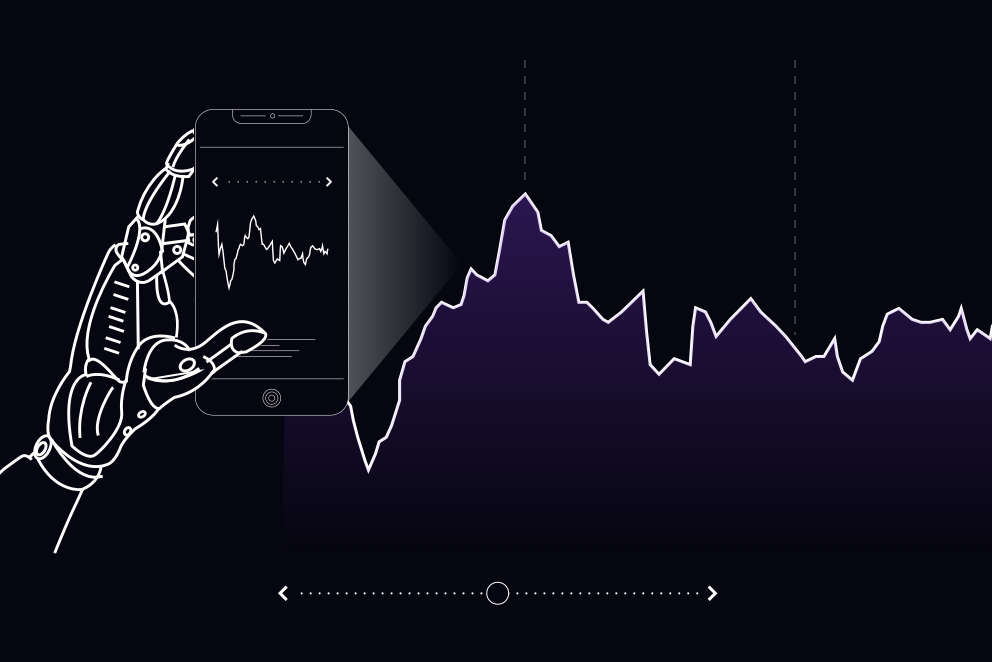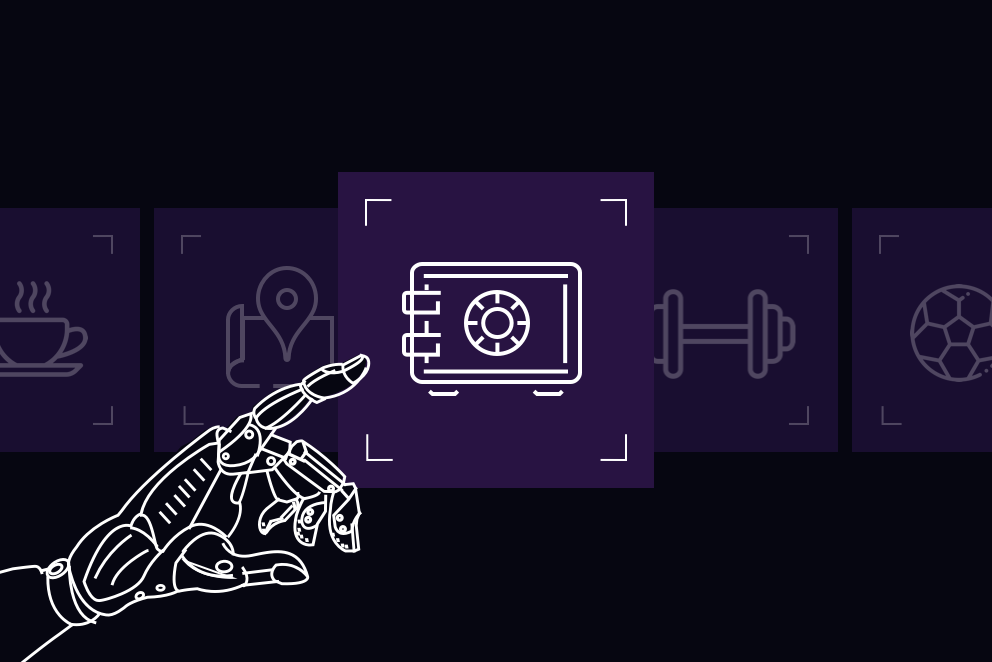Big data is pocket-sized
Big data has already started to revolutionise our world. Companies can see what consumers buy, when they buy it and how likely they are to buy it again. In 2069, big data is available to everyone, and it is invaluable for traders as they decide whether to open and close positions.
Everyone can access big data
By 2069 big data has changed the very fabric of society. It’s not just the big tech companies that have access to it – everyone does – and data sets form the basis for traders’ decision making. Big data became readily available because regulators required big tech firms to start sharing their data with everyone, out of a fear that their unfettered access enabled them to manipulate the markets.
The steps taken by regulators were an attempt to level out the trading game; by giving everyone access to the advantage afforded by big data, it ceased to be unfair. In doing so, they created a highly efficient and seamless market in which movements are common and, thanks to hand-held quantum computers, easily analysed.
Pocket-sized quantum computers
Quantum computers, or ‘quants’ as they are more commonly known in 2069, are invaluable pocket-sized analytical tools which can find correlations in data sets. By relying on analysis carried out by quants with the backing of big data, traders can make better decisions.
The pairing of quants and big data also means that the markets move much faster than they do today. Scalping and day trading have become the dominant trading strategies because quants are capable of carrying out hundreds of millions of calculations every second. This is possible as quants can tackle multiple problems simultaneously, which lets them consider many possible solutions at once while simultaneously discarding solutions that don’t work.

Predictive tech informs trading decisions
Quants can easily recognise correlations and patterns that traders would otherwise struggle to see. As an example, quants will see that the sales of snacks, soft drinks and beer increase around the time of major sporting events such as a football world cup, and combine this information with historical data to make short, medium and long-term predictions.
For instance, quants could forecast that injury rates are likely to rise as more and more people take up a new sport or head to the park for a game of football, following a major tournament. They could then make a recommendation for a trader to buy stocks in pharmaceutical companies with the view that hospitals will be using more medical supplies.

Equally, they could predict that people are likely to spend less money on other leisure activities, such as visits to cinemas, pubs, theatres and restaurants as they get into new exercise regimes, and forecast the effect on the revenues and stock prices of affected companies. A quant might even advise traders to purchase stocks in supplement producers or vitamin manufacturers, if it anticipates that people will continue their regimes of getting fit long after the tournament has finished.
Quants greatly increase the potential for profits because they will not only identify probable outcomes, but also suggest related positions to help traders meet their end goals.
Could this really happen?
With time travel known to disrupt the space-time continuum, our experts take a look at how likely it is that these events will come to pass…
The view from 2019
Quantum physics might seem worlds away from a trading floor but a quantum computer would be able to crunch numbers and identify patterns in such a short timeframe that they would change trading, and society, forever. Some industry experts such as the Boston Consulting Group have predicted that efficient and useable quantum computers are a practical possibility by 2040. This is because the systems required to carry out qubit calculations – the basis of quantum computing – should be suitably sophisticated by then.
Companies like IBM, Google, Microsoft, Intel and academic institutions like the Massachusetts Institute of Technology (MIT), Yale and Oxford University are already active in trying to develop quantum computers to significant levels of operating power. One of the main challenges, however, will be how to miniaturise quantum computers into viable hand-held devices. The main obstacle here will be keeping the quantum computer cold, because they need sub-zero temperatures in order to function properly, while the current methods to achieve these low temperatures require a lot of energy and storage space. It is not yet clear whether such miniaturisation will be possible by 2069, though it remains a possibility.
As for big data, it is already available to many companies like Facebook, Amazon and Google who collect and analyse our personal information based on interactions with mobile phones and computers. Big data is undoubtedly a big issue, with questions about privacy breaches already being asked. Regulators could step in at some point between now and 2069 to restrict the use of, and access to, big data by tech firms and marketers. However, it is unclear whether moves to make this data public would be successful as they would likely be subject to legal challenge.


